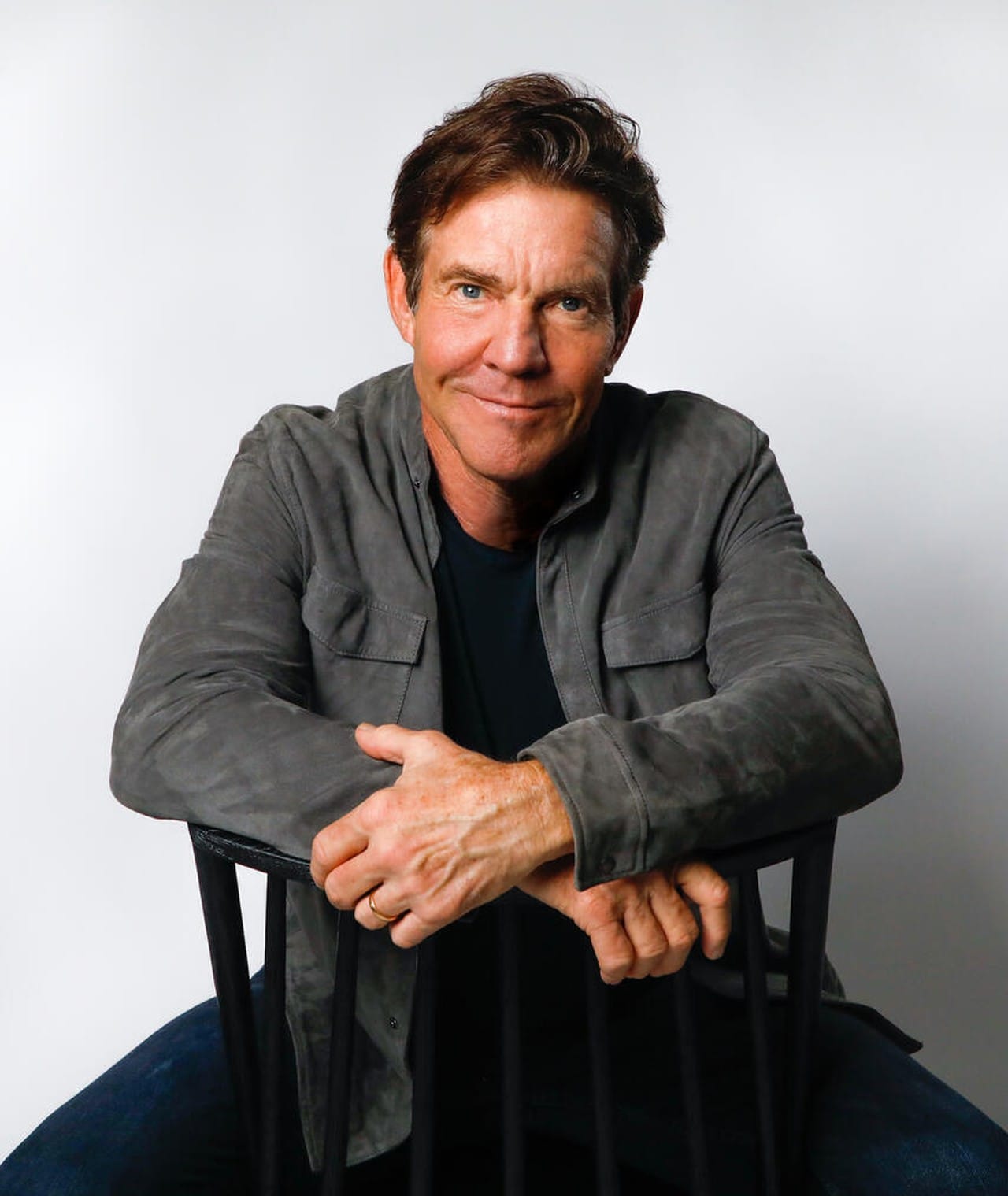In a world where social media amplifies moments of vulnerability, a recent clip featuring actor Dennis Quaid has ignited a wave of reactions online. The video, which shows Quaid being interviewed by a reporter while he was hurriedly evacuating his home, has raised questions about the ethics of interviewing individuals during moments of crisis. The incident occurred as Quaid was preparing to leave his residence due to an impending natural disaster, a situation that many can relate to but few would want to be filmed during.
The clip begins with Quaid visibly stressed, packing his belongings and trying to ensure the safety of his family and pets. As he rushes to gather essential items, the reporter approaches him with a microphone, asking questions about the evacuation process and his feelings regarding the situation. Quaid, clearly preoccupied and anxious, attempts to respond while managing the chaos around him. The juxtaposition of his frantic actions and the reporter’s inquiries creates a dissonance that many viewers found uncomfortable.
Social media users quickly took to platforms like Twitter and TikTok to express their thoughts on the interview. Some viewers found the situation cringe-worthy, criticizing the reporter for choosing to conduct an interview at such a sensitive moment. They argued that the focus should have been on Quaid’s safety and well-being rather than on obtaining a soundbite for the news. Others pointed out that the interview could have been postponed until after Quaid had secured his home and family, allowing him to speak more freely and without the pressure of an ongoing evacuation.
Conversely, some users defended the reporter’s actions, suggesting that interviews during emergencies can provide valuable insights into the experiences of those affected. They argued that such moments can highlight the human aspect of natural disasters, showcasing the emotional toll on individuals and families. This perspective emphasizes the importance of storytelling in journalism, even in the face of adversity.
The clip has also sparked discussions about the broader implications of media coverage during crises. Many commentators have raised concerns about the ethics of interviewing individuals in distress, questioning whether it is appropriate to prioritize news coverage over personal privacy and emotional well-being. This debate is not new; it echoes previous discussions surrounding media practices during natural disasters, accidents, and other traumatic events.
In the case of Dennis Quaid, the actor is no stranger to the public eye. Known for his roles in films such as “The Parent Trap” and “The Day After Tomorrow,” Quaid has built a career on portraying characters in high-stakes situations. However, the reality of facing a natural disaster is far removed from the scripted drama of Hollywood. The clip serves as a reminder that celebrities, like everyone else, are human beings who experience fear and anxiety in the face of danger.
As the video continues to circulate online, it has prompted a reflection on the role of journalists in covering emergencies. While the pursuit of news is essential, it is equally important to consider the impact of that coverage on individuals who are experiencing trauma. The balance between informing the public and respecting the dignity of those affected is a delicate one, and this incident has brought it to the forefront of public discourse.
In conclusion, the viral clip of Dennis Quaid’s evacuation interview has opened up a dialogue about the ethics of media coverage during crises. While some viewers found the situation cringe-worthy, others defended the reporter’s intentions. Ultimately, this incident serves as a reminder of the complexities involved in journalism, particularly when it intersects with personal tragedy. As society continues to navigate the challenges posed by natural disasters and other emergencies, the conversation surrounding media ethics will remain relevant and necessary.



